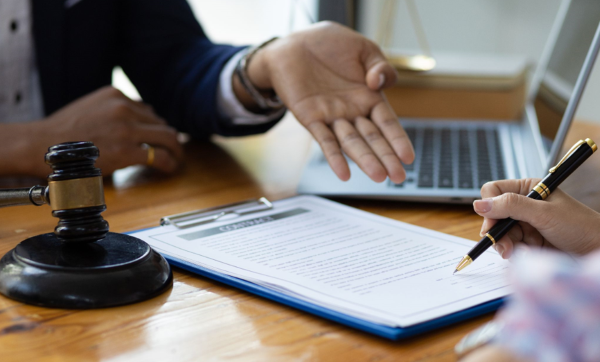The Critical Role of Witnesses and Depositions in Personal Injury Claims

[ad_1]
Many victims often face physical pain, emotional distress, and financial burdens in the days, weeks, and even months following a personal injury. Witnesses and depositions are crucial in building a strong case when seeking compensation for their losses. Witness testimony and statements provide valuable evidence that can significantly influence the outcome of a personal injury claim.
This article will analyze the importance of witnesses and depositions in personal injury claims, understanding the process, and how they can help victims achieve fair compensation.
Support the victim’s credibility
Witnesses play a critical role in upholding the victim’s credibility and countering any attempts by the defense to undermine the plaintiff’s version of events. For example, if the defense says the victim’s injuries were pre-existing, a witness who knew the victim prior to the accident can testify about his physical condition and refute the claims. Witness testimonies can be powerful tools in proving a victim’s honesty and integrity.
The importance of eyewitnesses
Eyewitnesses are individuals who have direct knowledge of the accident that caused the injury. They can be vital to a personal injury claim because their testimony provides an unbiased account of what happened. In car accidents, slip/fall, or other accidents, eyewitnesses can help identify fault and negligence.
Their statements can support the victim’s version of events, providing an independent perspective that strengthens the case. To ensure that their testimonies are accurately recorded, it is essential that witnesses be identified and contacted promptly after an incident has occurred.
The role of expert witnesses
expert witnesses You play a specialist role in personal injury claims. These individuals possess specific knowledge and experience in relevant areas, such as accident reconstruction, medical treatment, or occupational safety. Expert witnesses can provide professional opinions and interpretations of complex evidence that may be beyond the average person’s understanding.
Their testimony can be influential in determining liability, causation, and the extent of the victim’s injuries. Involving expert witnesses can be helpful in building a strong and convincing case.
Understanding deposits
Depositions are sworn, out-of-court testimony that takes place before a trial. It involves witnesses, including the victim, providing statements and answering questions from attorneys involved in the case. Depositions are made under oath and are usually recorded and transcribed for later use during the trial.
Depositions serve multiple purposes, such as preserving a witness’s story, gathering evidence, and assessing the credibility of witnesses. It also allows interested parties to better understand the strengths and weaknesses of their case.
Preparing for deposits
As a personal injury plaintiff, preparing for a deposition is essential. for you personal injury attorney from Whitley’s Law It will walk you through the process, helping you understand what to expect and how to respond to questions effectively.
Being prepared can help you stay calm and provide more credible testimony during your deposition. Reviewing key details of the accident, medical records, and other relevant evidence in advance will ensure that accurate and consistent information is provided during the deposition.
Determine causation and damages
Witnesses, especially expert witnesses, can provide valuable insights into causation, which is crucial in personal injury claims. For example, medical experts can explain how medical professionals’ negligence directly caused injuries in medical malpractice cases. Additionally, witnesses can help determine the extent of the damages, such as the severity of the injuries, long-term effects, and their impact on the victim’s life. The strength of witness testimony can greatly influence the compensation awarded to the victim.
Independent investigations
In some cases, witnesses can provide valuable information that leads to independent investigations. For example, if an eyewitness observes a dangerous condition in a premises liability case, this information may lead to a more in-depth investigation into the property owner’s negligence. Independent investigations can uncover key evidence that supports the victim’s allegations and exposes the responsible parties.
Personal injury attorney
a Skilled personal injury attorney Utilizing the power of witnesses and depositions in a personal injury claim is crucial. They will identify and interview witnesses, evaluate their credibility, and strategize on how to use their testimony most effectively.
Furthermore, an experienced attorney will thoroughly prepare you for your testimony, ensuring that your case is presented convincingly. Throughout the process, your attorney will make sure your legal rights are in everyone’s best interest, advocate on your behalf, negotiate a fair settlement amount, or represent you in court if necessary.
The missing piece of your claim; It’s all about the witnesses!
Witnesses and depositions are critical elements to a successful case Personal injury claim. They provide invaluable evidence, support the victim’s credibility, and help determine causation and damages.
Engaging expert witnesses and preparing for depositions is essential to effectively presenting witness testimony. To move through the legal process easier, there is a need to seek a lifeline from a skilled personal injury lawyer. Their experience and knowledge can make a significant difference in obtaining fair compensation and justice for the injured party.
[ad_2]
Source link





